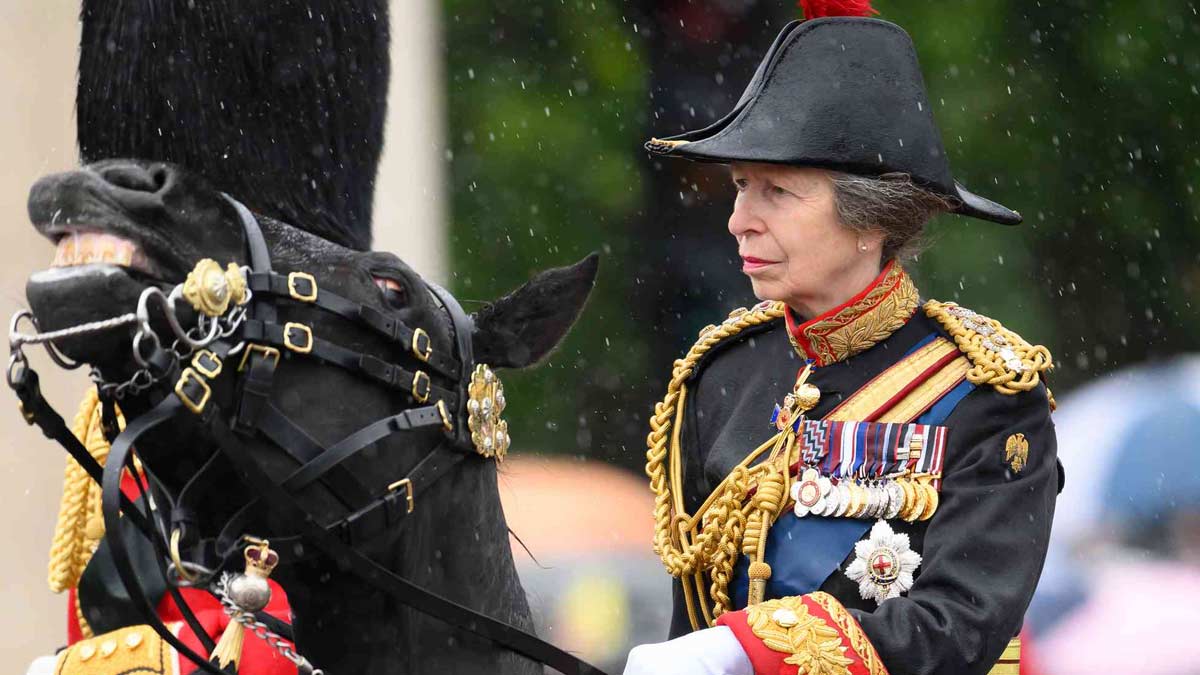
Princess Anne, a prominent member of the British royal family and the only daughter of the late Queen Elizabeth II, recently experienced a medical emergency at her Gloucestershire estate. The 73-year-old princess sustained a concussion after being kicked by a horse, necessitating her hospitalization. This incident has drawn widespread media attention and brought to light the severity and implications of concussions. This article delves into the details of Princess Anne's accident and provides an overview of what a concussion entails.
Table of Content:-
Princess Anne's Accident and Hospitalization
On a recent Sunday, Princess Anne was at her country home, Gatcombe Park, when she suffered an unfortunate injury caused by a horse. Following the accident, she was immediately taken to Southmead Hospital in Bristol for observation and treatment. An official statement from Buckingham Palace confirmed that the princess had sustained minor injuries and a concussion but was expected to make a full recovery. The statement further noted that King Charles, who is currently undergoing cancer treatment, was informed of his sister's condition and extended his heartfelt wishes for her swift recovery.
View this post on Instagram
According to reports, Princess Anne experienced temporary memory loss following the accident. Emergency medical personnel were promptly dispatched to the scene, and after initial care, she was transferred to the hospital. Her husband, Sir Timothy Laurence, and her children, Peter Phillips and Zara Tindall, were present at the estate during the incident. Sir Timothy accompanied her to the hospital, ensuring she received the necessary medical attention.
As a consequence of her injury, Princess Anne's planned trip to Canada has been postponed, and she is also expected to miss the state banquet for the Japanese state visit scheduled for Tuesday.
Also Read: Follow Kim Soo-Hyun’s Simple Skincare Routine For Viral Korean Glass Skin
Understanding Concussions
As per Dr Parimala V Thirumalesh, Senior Consultant-Neonatology and Paediatrics, Aster CMI Hospital, Bengaluru, a concussion is a form of mild traumatic brain injury (TBI) that temporarily disrupts normal brain function. This condition is typically caused by a sudden impact to the head or body that results in rapid movement of the brain within the skull. Concussions can affect various aspects of brain function, including memory, concentration, balance, mood, and sleep.
Causes and Mechanisms
The brain is a delicate organ cushioned by cerebrospinal fluid and encased within the skull. During a concussion, the brain can slide back and forth against the inner walls of the skull due to a violent blow to the head, neck, or upper body. This movement can cause damage to brain cells and disrupt normal brain function. Common causes of concussions include falls, car accidents, and sports injuries.

Symptoms of a Concussion
Symptoms of a concussion can be subtle and may not appear immediately after the injury. They can persist for days, weeks, or even longer. Common symptoms include:
- Headache
- Confusion
- Memory loss (amnesia), particularly regarding the event that caused the injury
- Nausea and vomiting
- Fatigue or drowsiness
- Blurred vision
Also Read: Kris Jenner's Surrogacy Offer At 68 Sparks Conversation; What Is the Ideal Age for Surrogacy?
Other symptoms that may develop include dizziness, ringing in the ears, sensitivity to light and noise, trouble sleeping, and changes in mood or behaviour. In some cases, individuals may experience a temporary loss of consciousness, though this is not always the case.
Diagnosis and Treatment
Diagnosing a concussion typically involves a thorough medical examination and an assessment of the individual's symptoms. Healthcare providers may also use imaging tests, such as CT scans or MRIs, to rule out more severe brain injuries.
Treatment for a concussion primarily focuses on rest and managing symptoms. It is crucial for individuals to avoid physical and mental activities that can exacerbate symptoms until they have fully recovered. Gradual reintroduction of activities is recommended, under the guidance of a healthcare professional.
Bottomline
Princess Anne's recent accident and concussion highlight the importance of understanding and addressing traumatic brain injuries. Concussions, while often considered minor, can have significant and lasting effects on an individual's health and well-being. Prompt medical attention and proper management are essential for recovery. As the princess recuperates, her experience serves as a reminder of the need for awareness and caution regarding head injuries.
Also watch this video
How we keep this article up to date:
We work with experts and keep a close eye on the latest in health and wellness. Whenever there is a new research or helpful information, we update our articles with accurate and useful advice.
Current Version
